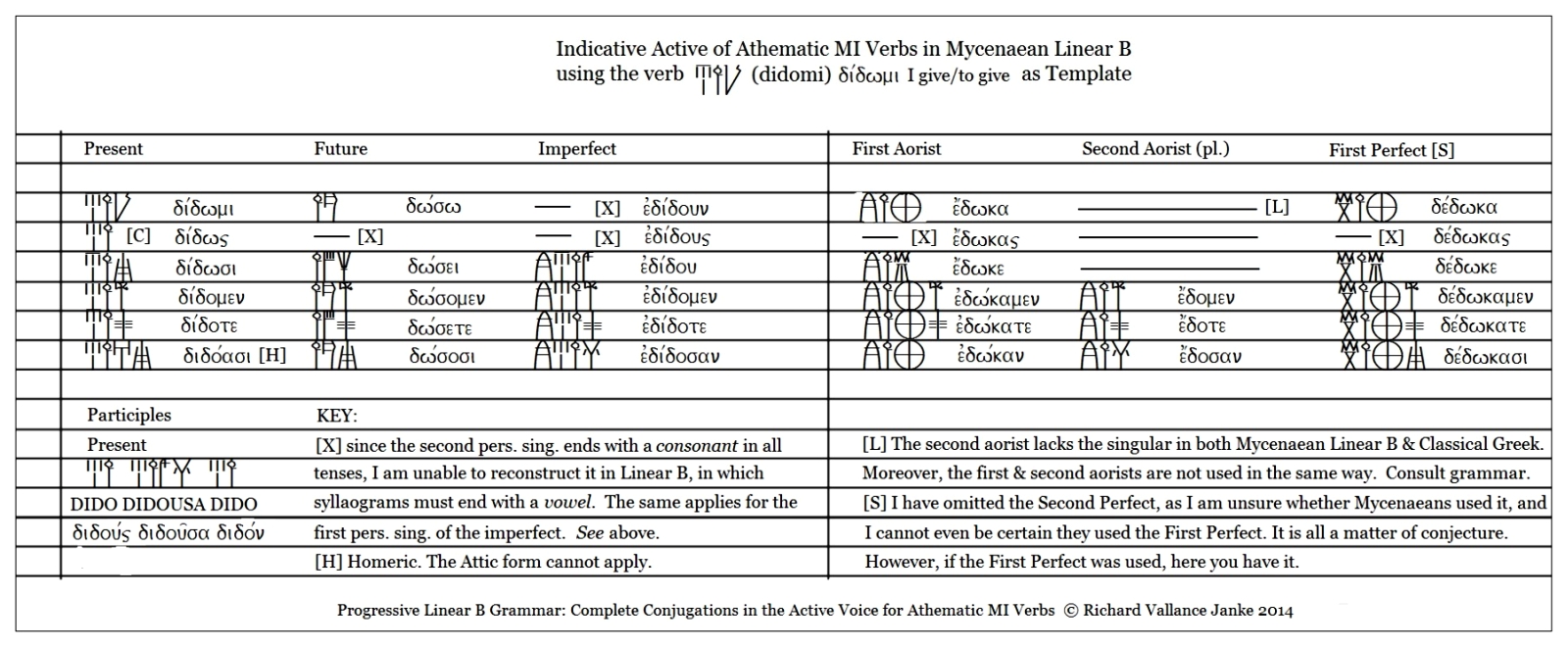I set loose release untangle take apart is generally used as a model greek verb.
Attic greek verbs.
Nouns adjectives pronouns articles numerals and especially verbs are all highly inflected.
εἰμί in autenrieth georg 1891 a homeric dictionary for schools and colleges new york.
The 5th 4th century bc classical and c.
εἰμί in liddell scott 1940 a greek english lexicon oxford.
εἰμί in liddell scott 1889 an intermediate greek english lexicon new york.
A list of words that covers 90 of tokens in a collection of attic prose texts from the perseus corpus.
An experiment with perseus new vocabulary tool.
Conjugate ancient greek verbs on line.
Buy the book or request an exam copy.
In addition to this in attic greek any plural neuter subjects will only ever take singular conjugation verbs.
The 9th 6th century bc known as archaic c.
Attic greek was the last dialect to retain it from older forms of greek and the dual number had died out by the end of the 5th century bc.
In addition to these parts of speech greek includes adverbs conjunctions interjections and prepositions.
εἶμαι eîmai modern greek.
The only irregularity is that the stem has a long vowel.
It should be obvious that the verb system of greek is complex.
Attic second declension.
Another complication of greek grammar is that different greek authors wrote in different dialects all of which have slightly different grammatical forms see ancient greek dialects.
The basic forms of irregular verbs are generally listed in dictionaries.
The indicative of εἶμι eîmi is generally used.
Ancient greek grammar is morphologically complex and preserves several features of proto indo european morphology.
Ancient greek is the form of greek used during the periods of time spanning c.
Many parts of this site will be helpful however to anyone beginning or reviewing.
Lelumetha or λελύμεθαlelumetha or λελύμεθα.
The 3rd century bc 6th century ad hellenistic in ancient greece and the ancient world.
This verb is made more complex by the fact that in attic greek that is the dialect of most of the major classical authors the present tense apart from the indicative mood imperfect tense and future are usually replaced by parts of the irregular verb εἶμι eîmi i will go.
είμαι eímai references.

